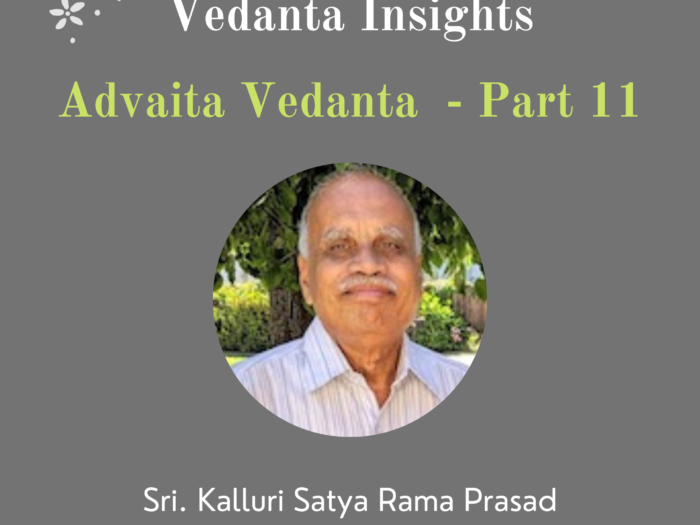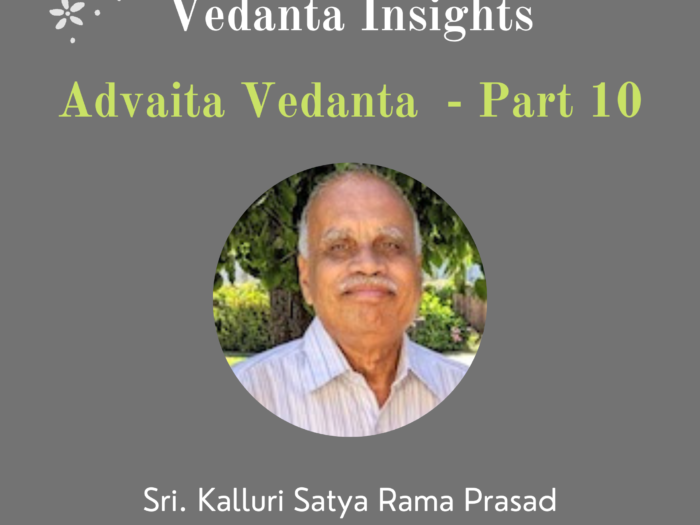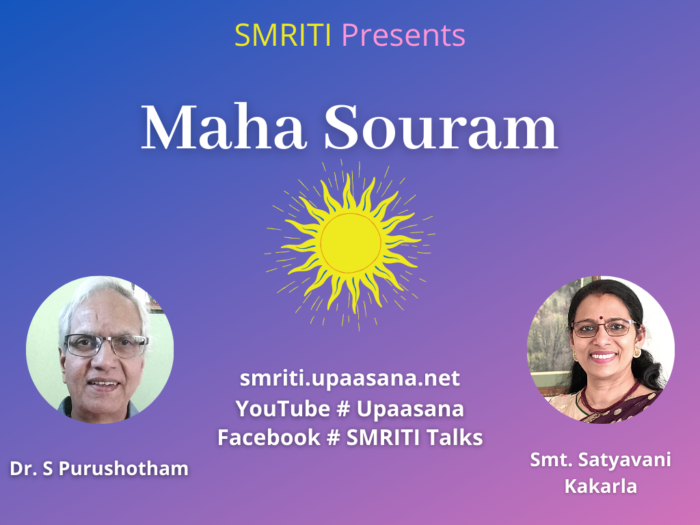Definitions (along with explanation) covered in this issue:
“Mahaavaakyam {Great dictum/Declaration}”; “Vritti {Mental Modification/ Dispostion}”; “Shravanam {Listening}; “Mananam {Cogitation/Contemplation}”; “Nidi-dhyaasanam {Unbroken Mediatation}”; “Abhaavanaa {Ignorance of Reality}, Asambhaavanaa {Doubting the Reality} & Vipareeta-bhaavanaa {Contrary concept of Reality}”
Vedanta always looked at human beings as a complex personality. At the grossest level as the body and limbs and at the subtlest level as Consciousness, the Self; in-between, the manifestations, the whole idea of Mind as an integral part of being, we have the mind and mind related activities that is intellect, memory… recollection, analysis, and the Prana which is supposed to be supporting the whole bodily activities.
Nyaya in medieval times, history of Nyaya Shastra, the enriched knowledge of logic and analysis.
Definitions (along with explanation) covered in this issue:
“Samhitaa {Compiled Mantra-s}”; “Braahmanam {Procedures for conducting Rituals}”; “Aaranyakam {Section pertaining to Subjective Mental Worship}”; “Upanishad {Highest Philosophical Knowledge}”; “Brahma-sootraani {Aphorisms related to Brahman}”; “Bhagavad-geetaa {Divine Song}”; “Vedaantah {Highest Philosophical Knowledge}”; “Prasthaana-trayee {Triad of ‘Sources of Authority’}
Maha Souram is a collection of 65 mantras carefully selected from various parts of Rigveda, all of which either extol Sun God and / or seek His grace for a powerful and energetic life.




